With 2019 just about over, we’re taking a look back at some of what we learned this year.
We’ve talked to dealmakers about going through an IPO, M&A lessons learned, creating successful family offices, setting up the right capital structure, building a business when investors didn’t believe and creating a deal strategy for value creation.
Here’s a glimpse of some of what we’ve covered in a busy 2019.
Startup to IPO in 18 months
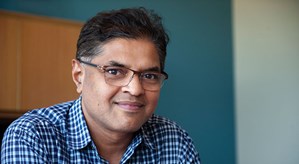 CEO Krish Krishnan is an experienced executive in biotech, where it can take time to generate revenue due to multiple phases of trials and studies. So he didn’t expect to go from self-funding Krystal Biotech to IPO in 18 months.
CEO Krish Krishnan is an experienced executive in biotech, where it can take time to generate revenue due to multiple phases of trials and studies. So he didn’t expect to go from self-funding Krystal Biotech to IPO in 18 months.
The Pittsburgh-based company is developing treatments for rare, orphan skin diseases caused by the absence of, or a mutation in, a single gene. When Wall Street investor interest picked up, Krishnan decided to go public.
“It was a bit of a whirlwind, but the one advantage I had is it’s not my first IPO,” Krishnan says.
He describes the ins and outs of raising capital in the biotech space.
A CEO’s approach to M&A
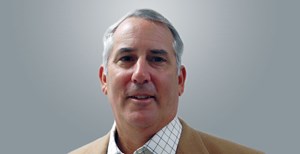 As an entrepreneur who only recently experienced M&A for the first time, Michael J. Lewis learned quickly. In four years, the former CEO of Quick Med Claims went through two sales and initiated five acquisitions.
As an entrepreneur who only recently experienced M&A for the first time, Michael J. Lewis learned quickly. In four years, the former CEO of Quick Med Claims went through two sales and initiated five acquisitions.
“I’m considered a smaller deal, and I was doing deals even smaller than me,” Lewis says. “There’s a lack of knowledge — people don’t know how to sell a company.”
Lewis shares his unvarnished opinion of today’s deal market and his passion to help business owners navigate the selling process.
Finding family office success
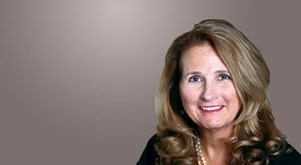 There are many layers to family offices — portfolio allocation, investment strategy and philanthropy to name a few — but education and focus are at the heart of everything, says Ann Dugan, who has worked with family offices across the country.
There are many layers to family offices — portfolio allocation, investment strategy and philanthropy to name a few — but education and focus are at the heart of everything, says Ann Dugan, who has worked with family offices across the country.
She also has noticed increased interest in direct investing and the need to be a producer.
“Families and their family office directors have wrapped their arms around [the idea] that we need to produce new wealth and not just consume what we inherited from past generations,” says the senior managing director of advisory and educational services at the Family Office Exchange.
Dugan explains what it takes for family offices and family members to be successful.
Getting the right capital structure
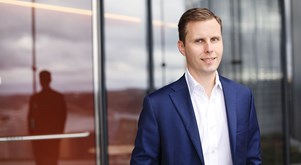 Andrew Wiechkoske has never had the unfortunate experience of having a deal fall apart at or near the finish line, even though he’s completed more than $1 billion in acquisitions.
Andrew Wiechkoske has never had the unfortunate experience of having a deal fall apart at or near the finish line, even though he’s completed more than $1 billion in acquisitions.
“We don’t get focused on driving to the very best economic outcome,” says the managing director of PNC Riverarch Capital. “We focus on working with people that we know and that we trust and that will deliver on what they tell us.”
The PE group knows relationships are critical. For example, PNC Riverarch works almost exclusively with five or six lenders that it trusts.
Wiechkoske gives his thoughts on setting up the right capital structure.
A Cinderella story
 When Michael Blair and his wife, Jennifer, founded Deka Lash in 2011, the reaction from the Pittsburgh investor community consisted of raised eyebrows and roadblocks.
When Michael Blair and his wife, Jennifer, founded Deka Lash in 2011, the reaction from the Pittsburgh investor community consisted of raised eyebrows and roadblocks.
“They couldn’t get their arms around this concept of eyelash and retail,” says Blair, who compares Deka Lash to Software as a Service because of its recurring revenue model. “They wanted to invest in technology or AI-based companies.”
Today, with more than 60 franchise locations, the momentum has swung and investors are coming to them.
Blair talks about Deka Lash’s growth and his new project to build a holding company for other beauty, health and fitness businesses.
Incline’s M&A strategy and value creation
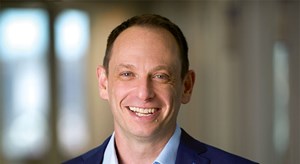 Leon Rubinov doesn’t like to play favorites with Incline Equity Partners’ investments.
Leon Rubinov doesn’t like to play favorites with Incline Equity Partners’ investments.
“All our kids are cute,” the senior partner says. “We don’t love one any more than the other. They’re all special in their own little way.”
But, Rubinov admits, some are more equal than others — like AmSpec, which Incline took from a $9 million EBITDA to well north of $40 million when it sold the business. The challenging journey paid off with a really great outcome.
Rubinov, who is responsible for sourcing, evaluating and monitoring Incline’s investments, shares how the PE firm drives value in its investments and works through challenges.




